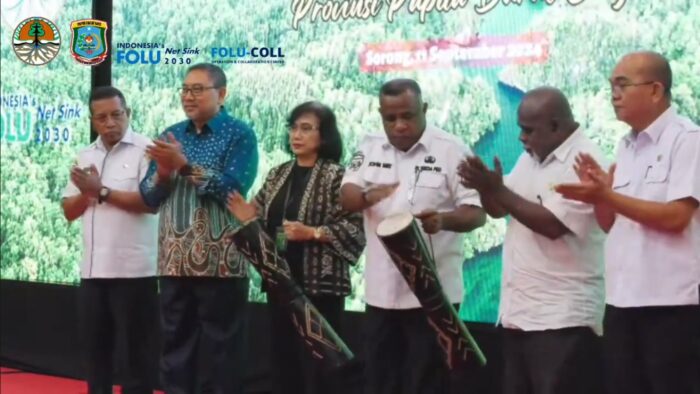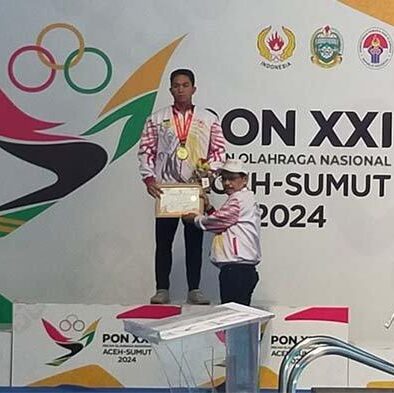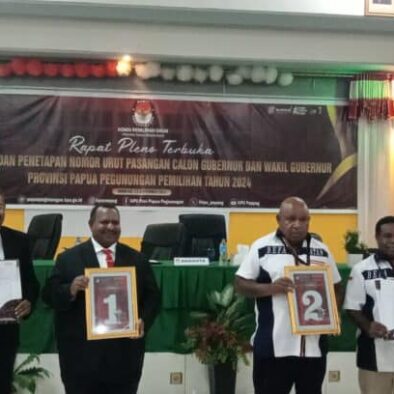Thelandofpapua.com – The Ministry of Environment and Forestry (KLHK) has partnered with the Provincial Government of Southwest Papua to spearhead efforts toward Indonesia’s Forestry and Other Land Use (FOLU) Net Sink 2030 initiative.
During a Sub-National Socialization event held in Sorong on September 11-12, 2024, key stakeholders, including local governments, businesses, universities, and non-governmental organizations, gathered to discuss the policy and its implementation in the region.
The FOLU Net Sink 2030 is a strategic policy designed to reduce Indonesia’s greenhouse gas emissions through its Nationally Determined Contribution (NDC). The policy aims to support global efforts to limit the rise in global temperatures to 1.5°C and to help Indonesia achieve net-zero emissions by 2060 or sooner.
In light of the increasing number of climate-related disasters across the country, the government sees this initiative as vital to addressing the growing impacts of climate change.
Critical Role of Southwest Papua’s Forests
With its vast forested areas covering 3.43 million hectares, Southwest Papua is positioned as a key player in achieving the FOLU Net Sink 2030 goals.
Prof. Dr. Haruni Krisnawati, Expert Staff of the Minister of Environment and Forestry for Energy Affairs, highlighted the importance of the region’s forests. “Southwest Papua’s forest cover, including primary dryland forests, swamp forests, and mangroves, provides significant potential for carbon absorption and storage,” she said.
These forests, which include 30.56% conservation areas, 22.31% protected forests, and 17.22% production forests, represent a major asset for Indonesia’s carbon mitigation efforts.
The region’s high potential for ecotourism, especially through the sustainable use of environmental services, was also noted as a promising avenue for future development in collaboration with local communities.
Green Economic Growth Plan
Acting Governor of Southwest Papua, represented by Regional Secretary Jhoni Way, revealed that the province has already laid the groundwork for green economic growth. “We have a master plan focused on green economic growth based on natural resources, with concrete programs like forest fire control, rehabilitation of degraded lands, and other initiatives aligned with FOLU Net Sink 2030,” Way explained.
Additionally, the provincial government is currently drafting the Regional Medium-Term Development Plan (RPJMD) for 2025-2029 and a Governor’s Decree on the Operational Plan for FOLU Net Sink 2030, which will formalize the region’s contribution to the national targets.
Integrated Mitigation Efforts
During the event, representatives of the Indonesia FOLU Net Sink 2030 sectors presented the National Operational Plan and offered guidance for local implementation.
The forestry sector in Southwest Papua will play an integral role in the overall mitigation strategy, with activities being monitored through a Measurement, Reporting, and Verification (MRV) process. This includes managing the region’s vast conservation areas, peatlands, and social forestry zones.
The Work Plan also considers sustainable forest management through Forest Management Units (PBPHs) and includes measures to enhance carbon reserves, manage peatland and mangrove ecosystems, and revitalize local economies. Community-driven initiatives and law enforcement activities, such as forest fire prevention, will also be key components of the plan.
Challenges and the Path Forward
Achieving the FOLU Net Sink 2030 targets will require improvements in several areas, including data accuracy on forest cover and land use, effective planning, and stakeholder coordination.
Enhanced monitoring systems, alternative funding sources, and tailored mitigation actions based on spatial analysis of environmental, institutional, and biogeophysical factors will be crucial in meeting the national greenhouse gas emission reduction targets.
The insights and directives from the September 11 socialization event will be further refined at a workshop on September 12, which will focus on developing a comprehensive Sub-National Work Plan for Southwest Papua.
This workshop will involve a diverse group of stakeholders, including local governments, academics, NGOs, and indigenous communities, to ensure that the plan reflects the unique characteristics and challenges of the region.
As Indonesia pushes toward its ambitious climate goals, Southwest Papua’s forests, communities, and resources will be vital in supporting the country’s commitment to mitigating the impacts of climate change.



